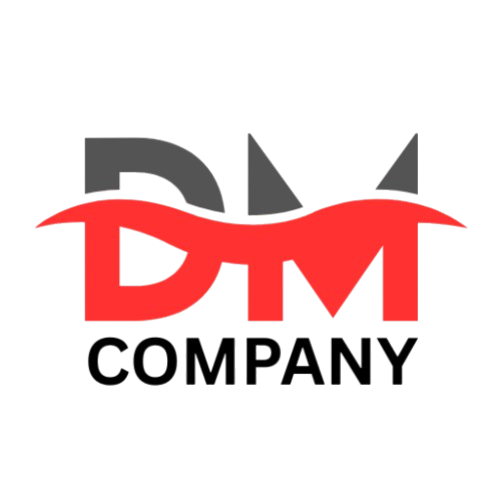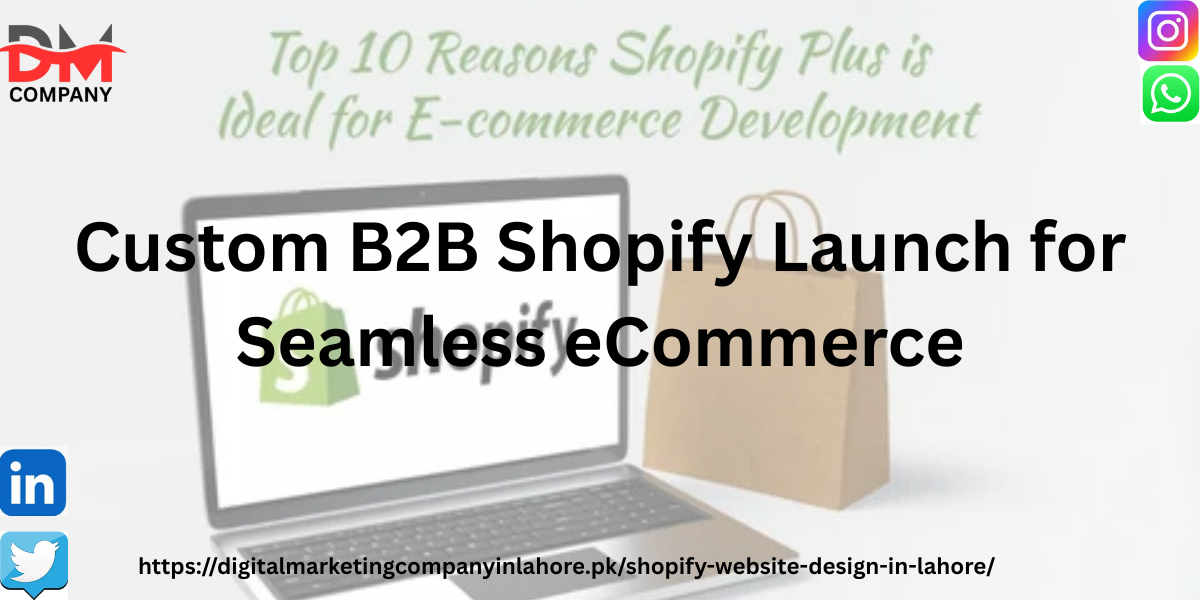Introduction
In today’s rapidly evolving digital marketplace, B2B (business-to-business) eCommerce is no longer just a convenience—it’s a necessity. Businesses want to buy from other businesses in the same way consumers shop online: easily, quickly, and with a personalized experience. Shopify, known for its user-friendly platform and robust features, is increasingly becoming the go-to choice for B2B eCommerce. However, when it comes to complex business needs, a Custom B2B Shopify Launch for Seamless ECommerce can make all the difference.
This guide will explore why a tailored Shopify solution is essential for B2B businesses, the benefits of customization, the key features to include, and how to ensure a seamless launch that drives long-term success.
Why B2B Needs a Custom Shopify Solution
1. Unique Customer Requirements
Unlike B2C customers, B2B buyers often have unique needs, such as bulk ordering, custom pricing, and long-term contracts. A standard Shopify store may not cater to these requirements without customization.
2. Complex Product Catalogs
B2B businesses often sell products in different variations, sizes, or pricing tiers depending on the customer. Custom solutions allow you to structure and display this data in a way that simplifies purchasing.
3. Integration with Business Systems
B2B operations usually require integration with ERP (Enterprise Resource Planning), CRM (Customer Relationship Management), and inventory systems. Custom development ensures smooth synchronization between Shopify and these platforms.
4. Streamlined Ordering Process
Custom Shopify stores can provide features such as quick reorders, account-based pricing, and wholesale discounts, making the purchasing journey faster and more efficient.
Benefits of a Custom B2B Shopify Launch
1. Tailored User Experience
Every business has its own audience, and customization allows you to design an experience that meets the exact expectations of your clients.
2. Scalability
As your business grows, a custom Shopify store can easily accommodate more products, higher order volumes, and additional features without disrupting operations.
3. Competitive Advantage
A personalized B2B store with advanced features can set you apart from competitors still using generic eCommerce solutions.
4. Improved Customer Loyalty
By offering clients an easier and more personalized buying process, you create stronger relationships that encourage repeat business.
Key Features of a Custom B2B Shopify Store
When launching a Custom B2B Shopify Launch for Seamless ECommerce, certain features can greatly enhance functionality and user experience:
- Custom Pricing Rules – Set different prices for wholesale clients, bulk orders, or specific customer groups.
- Advanced Account Management – Allow buyers to manage multiple users under one account, each with specific permissions.
- Bulk Ordering Capabilities – Let clients add multiple products to their cart quickly, with quantity and variation options.
- Quick Reorder Function – Enable customers to reorder previously purchased items with one click.
- Minimum Order Quantities – Enforce order rules to ensure profitability.
- Flexible Payment Options – Include purchase orders, credit terms, and custom payment gateways.
- Integration with ERP/CRM – Keep business data synchronized in real time.
- Multi-language & Multi-currency Support – Ideal for global B2B operations.
Steps to Launch a Custom B2B Shopify Store
Step 1: Understand Your Business Needs
Before starting development, analyze your current processes and identify the features your B2B store must have to serve your clients better.
Step 2: Choose the Right Shopify Plan
Shopify Plus is the most suitable option for large-scale B2B operations, offering advanced customization and automation features.
Step 3: Work with an Experienced Shopify Developer
A skilled Shopify development team can translate your requirements into a fully functional and visually appealing online store.
Step 4: Design for Your Target Audience
For B2B, focus on simplicity, clear product categorization, and functionality over flashy designs.
Step 5: Integrate with Business Tools
Ensure your store connects seamlessly with ERP, CRM, and accounting systems for real-time data flow.
Step 6: Test Thoroughly Before Launch
Run usability tests, security checks, and performance tests to ensure the platform can handle your expected order volume.
Step 7: Train Your Team and Clients
Provide guidance to both your internal team and your clients on how to use the platform effectively.
Common Challenges in B2B Shopify Launches and How to Overcome The
- Complex Product Data Management – Use Shopify’s bulk upload features or integrate a product information management (PIM) system.
- Different Pricing for Different Clients – Implement apps or custom code to automate pricing rules.
- Long Sales Cycles – Use email marketing integrations to nurture leads during extended decision-making periods.
- International Shipping Complexities – Integrate advanced shipping apps with multi-region capabilities.
Best Practices for a Seamless B2B Shopify Launch
- Prioritize Mobile Optimization – Even B2B buyers shop on mobile devices.
- Offer Transparent Pricing – Avoid hidden fees to build trust.
- Enable Self-Service Portals – Give clients control over their orders and account information.
- Leverage Automation – Automate repetitive tasks such as sending invoices, order confirmations, and shipping updates.
- Monitor and Improve Post-Launch – Use analytics to identify bottlenecks and refine the customer experience.
Marketing Your New B2B Shopify Store
A great store launch is only the beginning—you also need a strong marketing strategy:
- Email Campaigns – Announce your store launch to existing and potential clients.
- LinkedIn Marketing – Target decision-makers in your niche.
- Content Marketing – Publish industry insights and product guides to attract organic traffic.
- PPC Advertising – Run targeted ads to reach qualified B2B buyers.
- SEO Optimization – Optimize product pages, categories, and blog content for search engines.
Measuring the Success of Your B2B Shopify Store
Track key performance indicators (KPIs) to ensure your store meets its business goals:
- Conversion rate
- Average order value (AOV)
- Customer lifetime value (CLV)
- Cart abandonment rate
- Website traffic and engagement
Conclusion
Launching a custom B2B Shopify store is a strategic move for any business that wants to deliver a seamless, efficient, and personalized buying experience to its clients. While a standard Shopify setup may work for small-scale operations, B2B transactions often involve complex pricing, bulk orders, and integration requirements that demand customization.
By understanding your business needs, working with the right development team, and focusing on user-friendly features, you can create a store that not only meets your current demands but also scales with your growth. Post-launch, continuous optimization, marketing, and customer engagement will ensure your investment pays off in the long term.
A well-executed custom Shopify launch can transform your B2B eCommerce operations, helping you stay competitive, streamline workflows, and deliver value to your customers—exactly when and how they need it.

